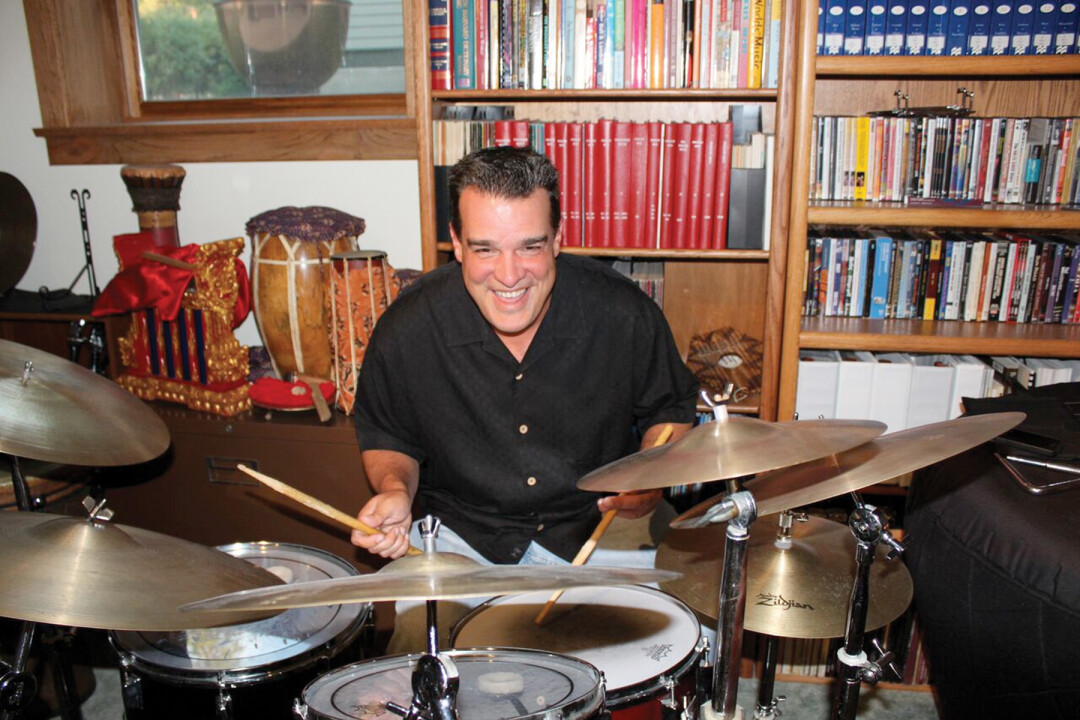Interview With A Maestro
Many people learn how to talk, but they don’t learn how to listen. Listening to one another is an important thing in life. And music tells us how to do that. [Molte persone imparano come parlare ma non come ascoltare. Ascoltare il prossimo è una cosa importante nella vita. E la musica ci dice come farlo.] -Claudio Abbado

KM: Maestro, Bozeman Magazine readers would like to hear about your 49th season (and upcoming 50th Anniversary). Tell us more!
MMS: The Collage Concert is a very special performance coming up over the holidays. My professor invented it, and we’ve added our own touches. What’s great about it, is that it’s a very unique concert with no breaks. Short pieces feed various types of ensembles, so the first note of each piece happens simultaneously with the last note of the piece prior, and it’s all choreographed to lights. The musicians submit their ideas to me, and they program the concert. What I love about it, is that it’s a way to show off the depth of the talent that we have in our choir and our orchestra. We are going to include some surprises, including a Klezmer group playing “Joy to the World,” and a very big finish in which I am going to be playing drums and not conducting. [Holiday Pops, December 10 & 11, 2016]
KM: Right now, I am going to www.bozemansymphony.org to subscribe before the season sells out again.
MMS: That’s right! In 2001, we sold out our entire season for the first time, and we are only one or two orchestras in the United States who have done that. This year we are doing things to sharpen our skills for our 50th next year. For our first concert this year, in September, we’re doing the Prokofiev Third Piano Concerto with Spencer Myer, a pianist that I adore and love working with. The Prokofiev is a really hard piece, and I promised Spencer a concert once he’d mastered it. In the second half of that concert, we are doing Carl Nielsen’s Second Symphony, which is a piece the orchestra and I have never done before. The Nielsen is really spectacular with soaring, sweeping melodies. [Symphonic Fireworks, September 24 & 25, 2016] One of my goals is to constantly be expanding our repertoire, and the musical thinkers we are forced to face (and try to get inside their heads).
KM: Encore, Maestro.
MMS: OK. So for the October concert, we have composer Miklós Rózsa, who wrote musical scores to epic movies in Hollywood, like Ben Hur. (Look him up and see how many Academy Awards he won.) He wrote this serious piece, Sinfonia Concertante, op. 29, not for a movie, but for two of the most famous string players in history, Gregor Piatigorsky and Jascha Heifetz. We have artists Jolyon Pegis, cello, and Maria Schleuning, violin, joining us, with Dvorak’s Eighth Symphony on the program as well, which is a favorite of mine, the Pastorale. [Sinfonia Concertante, October 29 & 30, 2016]
KM: I see in November you have the Symphonic Choir featuring James Whitborn’s jazzy Son of God Mass, and works by Bruckner, Rutter, Lauridsen, and more. [O Magnum Mysterium, November 11 & 13, 2016] And, you mentioned already the Holiday Collage is in December. You know the February concert, Signs of Life, is on my birthday.
MMS: Yes, great. In February, we’ll do a Chamber Orchestra concert including the Haydn Farewell Symphony, which you should Google because it was written to mediate a labor dispute and is fascinating. [Signs of Life, February 4 & 5, 2017] On February 11 is the Free Family/Children’s concert. Then, in March, we have a choir joining us. We’re doing the Brahms Schicksalslied and Bernstein’s Chichester Psalms, which is a phenomenal piece that calls for a boy soprano; and, my middle-school-choir-teaching wife promises me a boy soprano. A great cellist, Adrian Daurov, will make his first appearance in Bozeman with the Dvorak Concerto for violoncello, op. 104, B minor. Daurov and I worked together in Wyoming, and he’s a really fantastic talent. [Songs of Destiny, March 4 & 5, 2017] And, then we end the season with Mahler’s First Symphony. World class violinist Stephanie Chase is coming. Stephanie has had a major career, so I’m really excited to work with her. [The Titan, April 8 & 9, 2017] The whole 49th season is just spectacular, and we are sharpening our skills for the 50th season next year.
KM: Maestro, what can the community of Bozeman do to support your vision and growth for the Bozeman Symphony Orchestra?
MMS: There are a number of ways the community can help out. First, thank you to the community and donors for all you do. Bozeman does a great job of coming out to support the arts in the valley. From the symphony to the ballet to the theatre. We are also a collaborative community. That said, I wish those who could afford to do more, would. We need violinists and violists to audition for and join our orchestra. One of my dreams has always been to create fifteen salaried positions for the principals of the orchestra and do national auditions. You wouldn’t believe how that would change everything overnight. The orchestra needs $100,000.00 right away to defer costs of hiring musicians. I just lost someone, and the candidate to fill the position did not move here from Colorado because he couldn’t figure out how to piece together making a living here. I don’t think this is unique to music, I think it’s the low wages in Bozeman in general. If a principal in the orchestra leaves, I have no money to recruit new people. This is our biggest challenge right now.
KM: Do you think if we got a multi-featured, interdisciplinary concert hall, that would help? Or is that putting the cart before the horse?
MMS: We’ve had three initiatives in this valley for the big hall, one with offices and work spaces where the different disciplines (symphony, opera, ballet, and more) would rub elbows and collaborate together. At this point, what it will take is ONE major donor and that person’s vision to make it happen.

KM: You mean like a Hollywood Mogul from Paradise Valley?
MMS: I am always ready to talk to that person! The hall will play a large role in relation to the public. We’ll be able to enhance our donor base with a new performing arts center. We also need to work on supporting the musicians. None of this would happen without the large community of people who work harder than me, such as the musicians of our choir who are not paid a thing, and the musicians of the orchestra, who, when you add in all the hours they put in, are paid less than starting wages at McDonald’s. The musicians show a dedication and commitment to the art form that is very special. They are the ones who should get the credit for the successes of the Bozeman Symphony Orchestra, not me. I am inspired by those who somehow really do transform or overcome the ego in service to the Art. The older Bernstein got, the more egotistical he became, in my opinion. I am inspired by those who transform themselves through Art. The greatest thing about classical music is that every time we come into a room to rehearse, we have the score, we have the parts, we’re in a large group and it’s very obvious that we’re part of something bigger than ourselves. Every single time.
KM: Thank you Maestro Matthew Savery. Your conducting, and the orchestra, choir, guest artists, and collaborators are all treasures of the Treasure State. And, let your Orchestra and audience in Wyoming know that we want to keep you!
MMS: Thank you, sweet of you to say. You don’t have to worry about that, Bozeman is my home.
